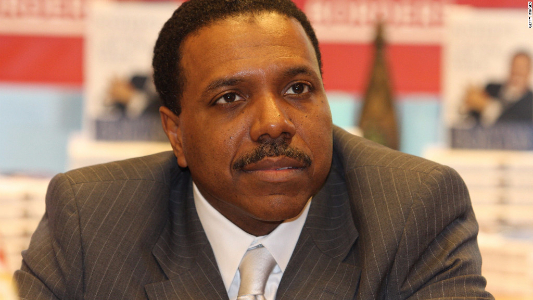Creflo Dollar’s new scheme to raise $60 million to purchase a luxury Gulfstream G650 airplane is the latest chapter in a long and sordid history of televangelists exploiting their churches’ tax-exempt status — and their congregants — to line their own pockets.
Preaching the word of faith, or “prosperity gospel,” and capitalizing on lax government oversight of his church’s finances has enriched Dollar and his family to the detriment of his followers and the American taxpayer.
World Changers Church International, Dollar’s 30,000-member church, is a tax-exempt organization under the Internal Revenue Code. That means the church’s donors receive a tax exemption for their donations (including for Dollar’s new jet ambitions) and the church pays no tax on the revenue.
What’s more, because it is organized as a church, the federal government does not require World Changers to file a publicly available tax return, as other nonprofit organizations are required to do. Those tax returns provide at least some financial information to donors and the public about the organization, including its revenues, assets, expenditures and executive compensation.
Dollar is known for his custom suits, luxury homes and private jets that ferry him, among other places, from his home base in College Park, Georgia, to his satellite church in Manhattan, where he and his wife reportedly have a $2.5 million apartment.
For Pastor Dollar, though, these excesses aren’t embarrassments. Instead, they are proof his theology works — that God blesses the faithful with abundant riches. Dollar tells his congregants to “sow a seed” with him, promising that a plentiful harvest will be their own blessing and, essentially, a return on their investment.
To promoters of the word of faith, or prosperity gospel, “sowing a seed” with your pastor is required for God’s blessing, even if you’re taking it out of your rent money or the last remaining cash in your wallet.
Many Christians find word of faith a heretical theology, an embarrassing distortion of Jesus’s teachings, not to mention a fraud on congregants. While the government cannot constitutionally mediate theological disputes or otherwise interfere in a church’s internal affairs, it can use its oversight powers to ensure that preachers who use their pulpits for profit don’t exploit the tax advantages afforded to ordinary houses of worship to pursue their legitimate charitable purposes.
In 2007, the Senate Finance Committee, under the chairmanship of Iowa Republican Sen. Charles Grassley, launched an investigation into the financial practices of six televangelists, including Dollar. The committee requested documents from Dollar and his wife, Taffi, explaining that taxpayers “should be assured that their donations are being used for the tax exempt purposes of the organizations.”
The documents sought by the committee included audited financial statements for World Changers, information about related for-profit and nonprofit entities and data on executive compensation and the church’s real and personal assets.
More than three years later, after an outcry from the televangelists, most visibly, Dollar’s mentor Kenneth Copeland, the committee opted to abandon its efforts to instigate any sort of regulatory changes. Instead, the committee called on the ministries to engage in “self reform,” even though the committee staff’s findings plainly demonstrated that four of the ministries, including Dollar’s, were unwilling to engage in any sort of meaningful transparency or accountability.
Of the six televangelists from whom the committee sought financial data, Dollar was deemed the “least cooperative.”
Without Dollar’s cooperation, the committee was left to piece together a puzzle about his finances through public documents, third parties and news reports. It concluded that in 2006, World Changers had received $69 million in contributions at its Atlanta church alone, that the Dollars owned two multimillion dollar homes in Georgia, and that the church and related business entities had at various points owned four different aircraft flown for personal use — although none were nearly as pricey as the luxury Gulfstream Dollar now seeks to acquire.
The committee staff was clearly troubled by the array of business entities, “including private airports and aircraft leasing companies,” that raised red flags “about the use of the church’s tax-exempt status to avoid taxation.” Precisely because of Dollar’s lack of cooperation, the staff concluded, “we are unable to determine whether and the extent to which they are reporting and paying taxes on income earned in those entities.”
Dollar is now looking to raise $60 million for this new aircraft, purportedly “to continue reaching a lost and dying world for the Lord Jesus Christ.” Four years after the abandonment of the Senate Finance Committee’s televangelist investigation, it looks like the absence of government oversight has only emboldened Creflo Dollar.



